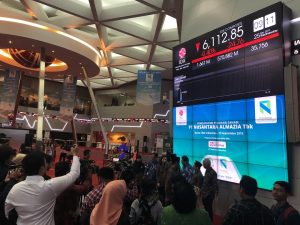The Role of Forex Programmers in Developing Trading Robots and Algorithms
In the fast-paced world of forex trading, technology plays a crucial role. Every day, millions of trades take place, and traders are constantly seeking ways to gain an edge in the market. This has given rise to the development of trading robots and algorithms that can carry out trades automatically, without the need for human intervention. Behind the scenes, forex programmers are the masterminds responsible for creating and fine-tuning these systems.
Forex programmers are skilled professionals who possess a deep understanding of both programming and the forex market. Their primary role is to develop and maintain trading robots and algorithms that can execute trades based on predefined rules and strategies. These systems are designed to analyze market data, identify trading opportunities, and execute trades with precision and speed that surpass human capabilities.
The process of developing a trading robot or algorithm begins with the identification of a trading strategy. This could be a technical analysis-based strategy that relies on patterns and indicators, or a fundamental analysis-based strategy that takes into account economic news and events. Forex programmers work closely with traders to understand their requirements and translate their trading strategies into code.
Once the trading strategy is defined, the forex programmer begins the process of coding the algorithm. They use programming languages such as C++, Python, or MQL (MetaQuotes Language) to write the necessary lines of code that will enable the robot to execute trades. The code must be efficient, robust, and capable of handling large amounts of data in real-time.
In addition to writing code, forex programmers also conduct rigorous testing to ensure the accuracy and reliability of the trading system. They simulate various market scenarios and evaluate the performance of the algorithm under different conditions. This process helps identify any flaws or weaknesses in the system and allows for necessary adjustments to be made.
Another crucial aspect of the forex programmer’s role is optimization. They continuously fine-tune the algorithm to improve its performance and adapt it to changing market conditions. This involves analyzing historical data, identifying patterns, and making adjustments to the trading rules. Optimization is an ongoing process that requires a combination of technical skills, market knowledge, and intuition.
The role of a forex programmer extends beyond just developing and optimizing trading systems. They also need to stay up to date with the latest technological advancements and market trends. This includes keeping track of new programming languages, tools, and platforms that can enhance the efficiency and effectiveness of trading systems. They also need to be aware of regulatory changes and ensure that the trading systems comply with all relevant rules and regulations.
Forex programmers often work in collaboration with other professionals, such as traders, data analysts, and risk managers. They need to communicate effectively and understand the requirements and constraints of each stakeholder. This collaborative approach ensures that the trading systems are aligned with the overall trading strategy and meet the needs of the traders.
In conclusion, forex programmers play a critical role in the development of trading robots and algorithms. They combine their programming skills with market knowledge to create systems that can execute trades automatically and efficiently. Their work involves coding, testing, optimizing, and staying up to date with the latest technological advancements. Without the expertise of forex programmers, the world of automated forex trading would not be possible.






